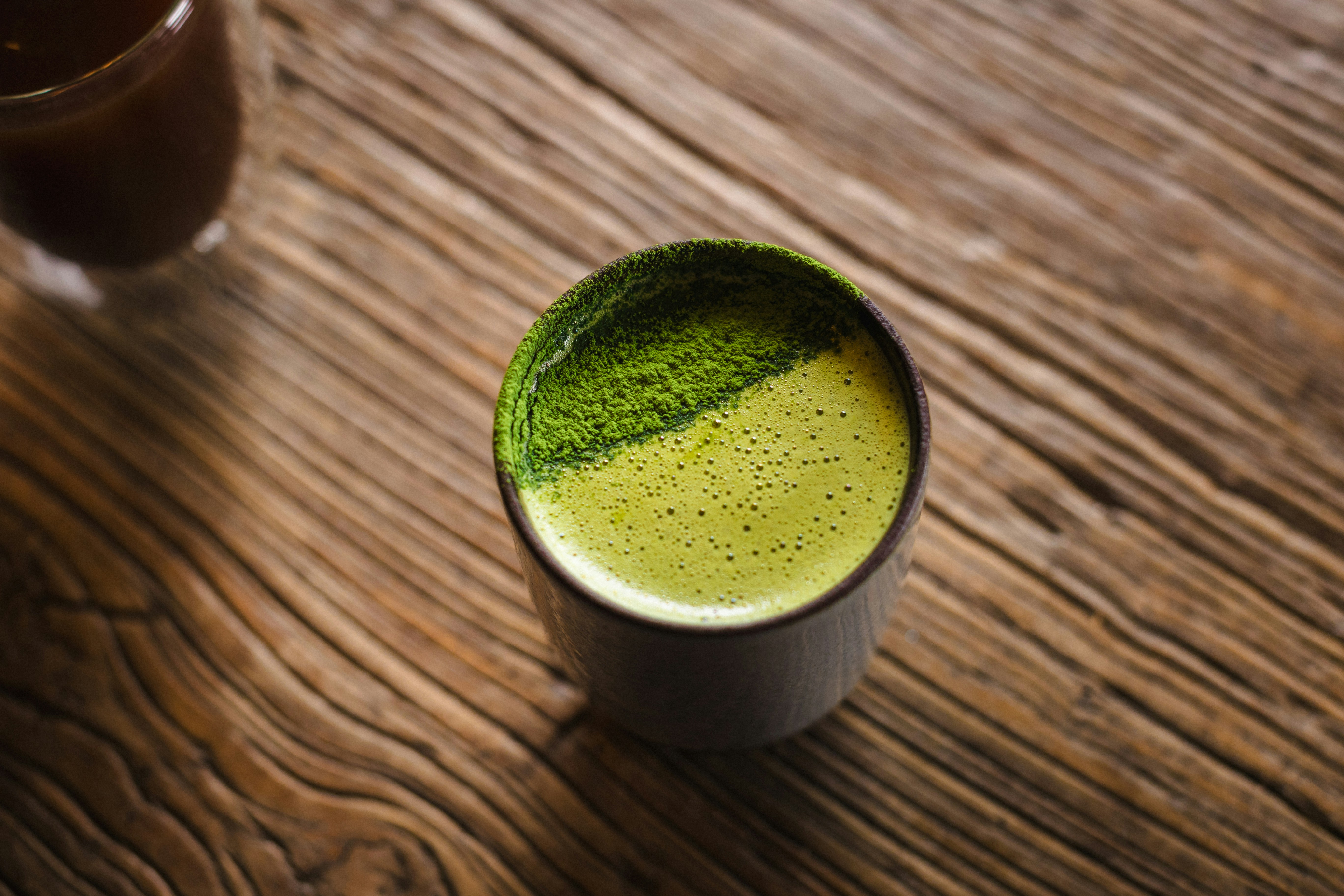Introduction: The Power of Mindfulness and Tea
In today’s relentlessly fast-paced world, where distractions are ubiquitous and stress levels continue to escalate, the practice of mindfulness emerges as an indispensable tool for preserving mental clarity, promoting emotional well-being, and achieving a state of balanced energy. Mindfulness, defined as the conscious practice of being fully present and engaged in the current moment, empowers individuals to navigate the complexities of their daily lives with heightened intention and awareness. This cultivated state of consciousness not only fosters improved decision-making and more effective emotional regulation but can also substantially enhance one’s energy levels, all without the dreaded crash commonly associated with stimulants like caffeine or sugar.
The synergistic relationship between mindfulness and sustained energy is profound. Cultivating a mindful mindset enables individuals to harness their mental and emotional resources more efficiently and effectively. Instead of depleting precious energy reserves through chronic stress, anxiety, and persistent distractions, mindfulness promotes a balanced and harmonious approach to life, encouraging individuals to truly savor their experiences and thereby enhancing their overall vitality. Integrating simple, yet impactful, mindfulness practices into daily routines can lead to increased focus, concentration, and a sustained sense of energy, making it easier to navigate the demands of modern life with grace and resilience.
In this transformative journey toward enhanced energy and holistic well-being, tea emerges as a remarkable and readily available ally. The rich history and profound cultural significance of tea across diverse societies elevates it from a mere beverage to a holistic and enriching experience. When one consciously takes a moment to mindfully enjoy a cup of tea, it creates a precious opportunity for introspection and connection—allowing the drinker to pause, reflect, and reconnect with the present moment. Personal anecdotes, shared experiences, and cultural traditions involving the savoring of a calming cup of herbal tea or a revitalizing green tea while practicing mindfulness further serve to illustrate this powerful connection. As we explore how mindfulness, when thoughtfully paired with tea consumption, can elevate our energy and enhance our overall well-being, we embark on a journey of both refined taste and profound tranquility.
Understanding Mindfulness: A Path to Enhanced Energy
Mindfulness, at its core, refers to the deliberate practice of being fully present and engaged in the current moment, cultivating an acute awareness of one’s thoughts, feelings, and bodily sensations without judgment or criticism. This invaluable state of awareness can be cultivated through a variety of practices, including meditation, focused breathing exercises, mindful walking, and yoga. Each of these practices encourages individuals to gently redirect their attention to the present moment, thereby fostering a sense of clarity, connection, groundedness, and renewed vitality. The neurological impact of mindfulness has been extensively documented in numerous scientific studies, showcasing its remarkable potential for stress management, emotional regulation, and increased focus, all of which contribute to enhanced energy levels.
The regular practice of mindfulness helps mitigate the detrimental effects of stress by promoting relaxation and reducing the arousal of the body’s inherent stress response. This reduction in stress hormones and physiological tension can lead to improved overall well-being, which, in turn, translates to enhanced energy levels and a greater sense of vitality. By consciously and intentionally directing our attention to the present moment, we can effectively break the cycle of overwhelming thoughts and persistent distractions that often drain our energy and leave us feeling depleted. According to a groundbreaking study published in “Psychological Science,” participants who engaged in regular mindfulness meditation exhibited significantly lower levels of perceived stress and demonstrably higher levels of emotional well-being compared to their counterparts in the control group.
Moreover, mindfulness can significantly improve concentration, focus, and mental clarity. When our minds are cluttered with worries, anxieties, or distractions, our energy tends to dissipate, leaving us feeling fatigued and mentally drained. Practicing mindfulness enables us to regain focus and reclaim our mental energy by allowing our thoughts to settle, ultimately leading to a more sustained and balanced flow of energy throughout the day. Anecdotal evidence, personal testimonials, and shared experiences strongly support this notion, with countless individuals reporting that incorporating mindfulness techniques into their daily routines has led to feeling more energized, focused, and productive in all aspects of their lives.
These transformative practices not only effectively combat fatigue and mental exhaustion but also foster a proactive and empowering approach to managing one’s energy levels, paving the way for a more vibrant, fulfilling, and energized life. As we delve deeper into the mindfulness journey, we uncover its profound and transformative effects on our energy, inviting a state of balance that both nurtures and invigorates us from within.
The Energy Dilemma: Understanding Energy Levels and Crashes
Maintaining healthy and consistent energy levels is absolutely crucial for our overall well-being, influencing not only our productivity and effectiveness but also our emotional state, mood, and resilience. An energy crash occurs when there is a sudden, noticeable, and often dramatic drop in our energy levels, frequently resulting in fatigue, irritability, diminished cognitive function, and a general sense of depletion. These crashes can leave individuals feeling drained, overwhelmed, and unable to effectively perform even simple daily tasks, leading to a desperate search for quick fixes that rarely, if ever, provide sustainable long-term solutions.
A multitude of factors contribute to these debilitating energy crashes, including poor diet, inadequate sleep, chronic stress, and excessive reliance on stimulants. For instance, many individuals experience an initial, albeit fleeting, energy high after consuming caffeine-laden beverages or sugary snacks, invariably followed by a rapid and often dramatic decline in energy levels. This rollercoaster effect can be particularly detrimental to overall well-being, significantly impacting concentration, focus, motivation, and emotional stability. Anecdotally, consider the all-too-common scenario of the office worker who, after a mid-morning coffee, finds their focus waning and their energy plummeting by noon. This scenario perfectly illustrates the pervasive experience of artificial energy highs followed by inevitable lows, which can significantly hinder not only professional performance but also personal life satisfaction and overall quality of life.
Moreover, emotional and mental states play a significant role in influencing our energy levels. Stressful situations, such as impending deadlines, interpersonal conflicts, or financial pressures, can relentlessly sap our energy, making it exceedingly difficult to stay engaged, focused, and productive. For example, a student facing the immense pressure of upcoming exams may oscillate between states of hyper-focus and profound fatigue, highlighting a common pattern of energy dips and fluctuations associated with chronic stress. Such unpredictable and often extreme fluctuations in energy can lead to a pervasive feeling of being chronically low on energy, a state that is increasingly recognized and acknowledged in modern society.
Developing a deeper understanding of these complex cycles of energy can empower individuals to make more informed and conscious decisions about their lifestyle choices. By recognizing and addressing the potential triggers of energy crashes, people can take proactive steps to foster a more stable, consistent, and sustainable energy flow. This foundational understanding lays the groundwork for embracing and integrating mindfulness practices, which can play a pivotal role in maintaining balanced energy levels without the dreaded crashes and subsequent feelings of depletion.
Tea drinking has long been recognized and appreciated not just for its delightful taste and aromatic qualities but also for its remarkable potential as a powerful mindfulness tool. Incorporating tea into daily rituals can significantly enhance one’s mindfulness practices, allowing individuals to consciously slow down, reflect on their inner experiences, and fully engage with the present moment. The simple, yet profound, act of brewing tea transforms into a mindful experience when one takes the time to truly appreciate each step of the process, from carefully selecting the tea leaves to savoring the rich aroma and complex flavor profile of the final brew.
Different types of tea can provide unique and enriching experiences that beautifully complement mindfulness practices. For example, green tea is widely known for its calming and centering properties, often associated with meditation and contemplative practices in various cultures. By focusing on the delicate preparation of matcha or the mindful steeping of sencha, individuals can cultivate a meditative state, promoting relaxation, clarity, and a sense of inner peace. Similarly, chamomile tea, with its gentle and soothing qualities, serves as a gentle reminder to let go of accumulated stress and tension, facilitating a deeper connection to one’s emotions and promoting a sense of tranquility.
Exploring the Health Benefits of Tea in Mindfulness Practices
Tea has long been a cornerstone of mindfulness practices, revered not only for its comforting qualities but also for a plethora of health benefits that enhance mental clarity, promote emotional balance, and sustain energy without the dreaded crash often associated with caffeinated beverages. Different varieties of tea, including green, black, and herbal infusions, each possess unique properties that cater to various mindfulness needs and preferences. Green tea, abundant in L-theanine and potent antioxidants, has gained considerable prominence in mindfulness circles for its remarkable ability to promote a state of calm alertness. Scientific studies suggest that L-theanine interacts synergistically with neurotransmitters in the brain, leading to improved focus, enhanced concentration, and increased mental clarity while simultaneously reducing stress levels and promoting a sense of tranquility. This delicate balance allows practitioners to engage in mindfulness exercises more effectively and deeply without the jitters, anxiety, or restlessness that can often accompany caffeinated drinks. Black tea, on the other hand, offers a more robust and stimulating profile, containing caffeine that typically ranges from 40-70 mg per cup. While it provides a moderate and sustained boost of energy, its slower release into the bloodstream prevents the sudden spikes and subsequent crashes often associated with coffee or energy drinks. Research indicates that the flavonoids present in black tea may contribute to improved cognitive function, enhanced memory, and increased mental clarity over time, making it an excellent choice for those seeking to remain mindful, focused, and energized throughout the day. Herbal teas, encompassing a vast and diverse range of ingredients from calming chamomile to invigorating peppermint, cater to a wide spectrum of needs, promoting relaxation, rejuvenation, and overall well-being. Specific herbal options such as ginseng and hibiscus can enhance mood, boost cognitive function, and support emotional balance, making them ideal for mindfulness practices aimed at balancing energy levels and fostering a sense of holistic well-being. Personal experiences shared by avid tea drinkers often highlight how a simple and mindful tea ritual can serve as a meditative act, reinforcing their mindfulness journey while simultaneously amplifying their energy, focus, and overall sense of vitality. Developing a Mindful Tea Routine: Steps to Get Started Establishing a mindful tea routine can significantly enhance your energy levels while providing a meditative and restorative experience. The first step is to set clear intentions for your practice. Before boiling the water, take a moment to reflect on what you hope to achieve during your tea time. Whether it’s to find clarity, reduce stress, or simply enjoy a moment of peace, articulating your intention can deepen your connection to the experience. Next, the selection of the right tea is crucial. Different teas offer varying properties that can affect your energy and focus. For instance, green tea provides a gentle caffeine boost, while herbal varieties like chamomile can promote relaxation. Experiment with different types to discover which ones resonate with your energy needs. Remember, the aroma and flavor can also evoke different feelings, adding another layer to your mindfulness practice. The environment in which you enjoy your tea plays a significant role in cultivating a mindful state. Create a designated space free from distractions, where you can fully immerse yourself in the experience. Consider dim lighting, soft music, or even the natural sounds around you to enhance the ambiance. Additionally, incorporate calming elements such as candles or plants, which can serve as visual reminders to remain present and grounded in the moment. Engaging stories from tea enthusiasts can further inspire your journey. Many individuals recount transformative experiences through their tea routines, emphasizing how a few quiet moments with tea dramatically improved their overall well-being and energy levels. As you embark on your own mindful tea routine, take note of how each session feels, and over time, you may find deeper insights into your personal energy dynamics and discover what truly nourishes and sustains you. The Spiritual Aspects of Tea and Mindfulness Tea has long served as a vessel for spiritual expression in various cultures around the world. Its preparation and consumption often transcend mere refreshments, embodying rituals that promote mindfulness, inner peace, and a deeper connection to the present moment. Common Misconceptions About Mindfulness and Energy Mindfulness, a practice rooted in ancient traditions, has garnered increasing attention for its potential benefits on energy levels and overall well-being. Unfortunately, numerous misconceptions can cloud the understanding of how mindfulness intertwines with energy enhancement, especially regarding the integration of tea consumption. Conclusion: Your Journey Towards Mindful Energy As we draw this discussion to a close, it is essential to reflect on the transformative power of mindfulness and its integral connection to the consumption of tea for enhancing energy levels and promoting holistic well-being. Throughout this exploration, we have delved into the profound relationship between mindfulness practices and the ability to cultivate sustained energy without the undesirable crashes often associated with stimulants. By incorporating simple yet effective techniques such as meditation, deep breathing, and thoughtful tea drinking into daily routines, individuals can significantly boost their vitality, enhance their mental clarity, and cultivate a greater sense of presence and inner peace. Mindfulness, at its core, encourages us to be fully present in each moment, promoting a deeper awareness of our thoughts, feelings, and physical sensations. This heightened awareness not only aids in managing stress but also empowers us to make more conscious and intentional choices about our consumption habits. It is within this context that tea emerges as a valuable and readily available ally. Various types of tea, rich in antioxidants and other healthful properties, can support hydration, reduce fatigue, and provide gentle, sustained stimulation, all while aligning perfectly with mindfulness practices. For readers seeking practical and sustainable ways to enhance their energy levels, the integration of mindfulness and tea drinking into their daily lives offers a transformative and accessible pathway. Simple actions such as taking a moment to truly savor a warm cup of tea, engaging in meditative breathing while enjoying the complex flavor profiles, or reflecting on the sensory experience can lead to substantial and lasting benefits over time. As you embark on your personal journey towards mindful energy, consider what steps resonate most deeply with you. Each small change, each conscious choice, carries the potential to create a more energetic, focused, and fulfilling life. Ultimately, the harmonious union of mindfulness and tea consumption not only has the capacity to elevate energy levels but also fosters a more profound connection to oneself and the surrounding world, encouraging an ongoing exploration of well-being, presence, and inner peace. Embrace this journey with an open heart, a curious mind, and a mindful spirit.








Leave a Reply